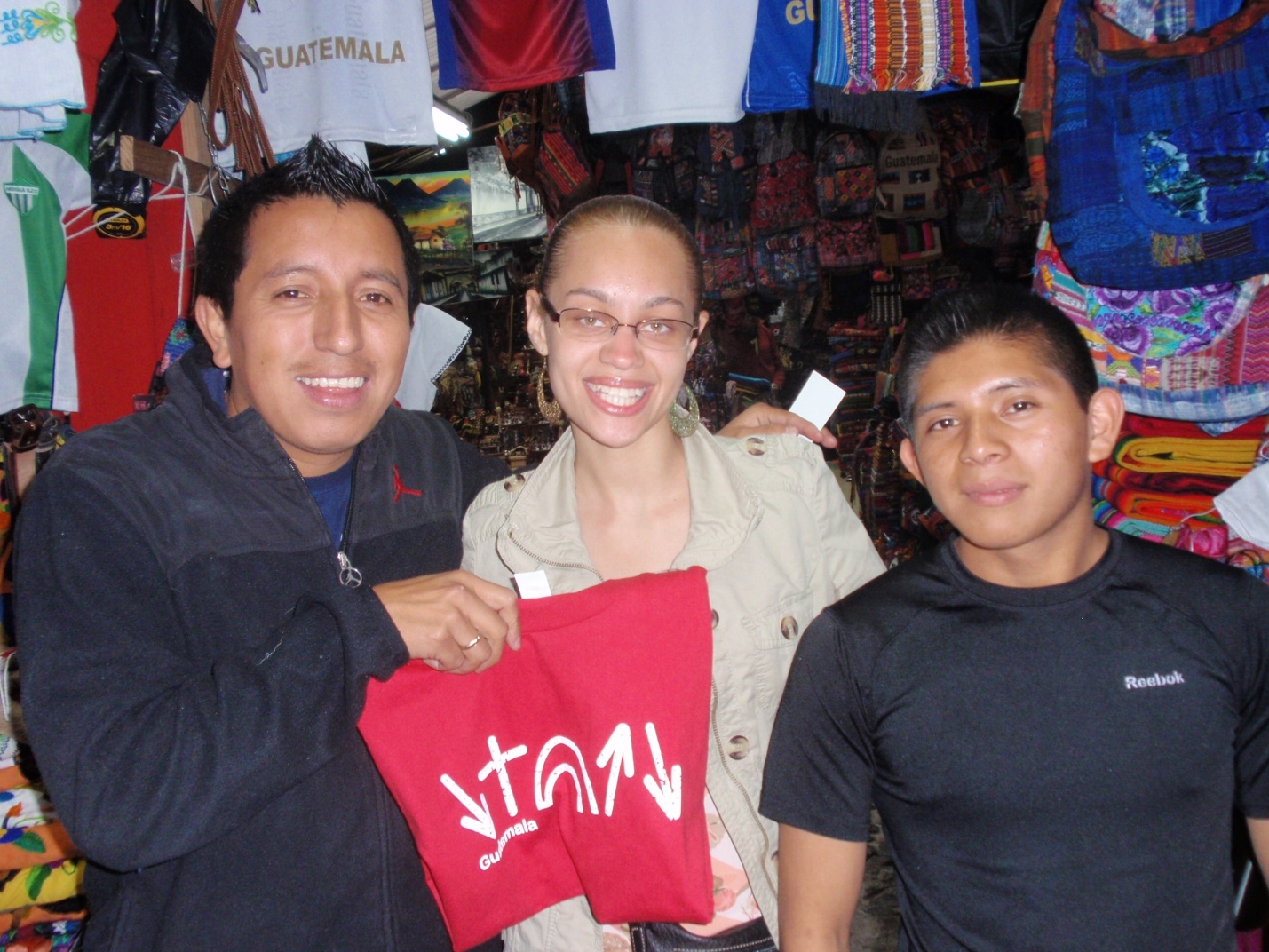WSU School of Social Work

Mitchell with vendors at the Artisan Market in Antigua
M.S.W. learns importance of contextualizing family behaviors in Guatemala
Jenneatta Mitchell (M.S.W., '13) characterizes her study abroad experience in Guatemala as a crash course in cultural competency. During Spring Break of March 2013, Mitchell devoted ten days to studying the strengths and weaknesses of social policies and human services in both the Central American country and the United States, and the experience taught her the importance of placing family behaviors in the context of family struggles.
While there, Mitchell saw unsupervised schoolâ€aged children peddling goods rather than attending school. She saw infants on motorcycles, traveling with parents on bumpy cobblestone roads without protection. She saw a lot of hunger.
"Things that we would view as neglect in America cannot necessarily be seen as neglect in Guatemala," said Mitchell, who through a Wayne Stateâ€approved program of Case Western Reserve University stayed in Antigua and took trips to cities and villages to observe the delivery of social services. "These people are just trying to survive. If there's a lack of food, it's because they don't have the means. If their children are not attending the free schools, it's because they can't afford the uniform and textbook and supplies or because they need help at home to make ends meet."
Mitchell, who studied family systems under the M.S.W. program's interpersonal practice concentration, said she also came to appreciate the varied ways that social workers are taught to forge connections with their clients. Despite earning a bachelor's degree in psychology and Hispanic studies and studying Spanish each morning in Guatemala, she didn't always rely on verbal interaction.
"I learned how you can communicate without language, focusing on hand gestures, a smile - finding a common factor as social workers have to do," Mitchell said. Even with a shared language, she added, "so often people are different from us, so we have to find ways to bridge the difference and make them feel comfortable."
Mitchell, who visited communities without water and a Guatemala City garbage dump where people spend their days Salvaging anything they can sell or repurpose for survival, also observed hope. While implementing an afterâ€school activity she coâ€developed for girls as part of her experience, she heard some talking about the opportunities made possible by their scholarships.
"They were very excited to be able to go to school," Mitchell said, "and really excited about becoming teachers."